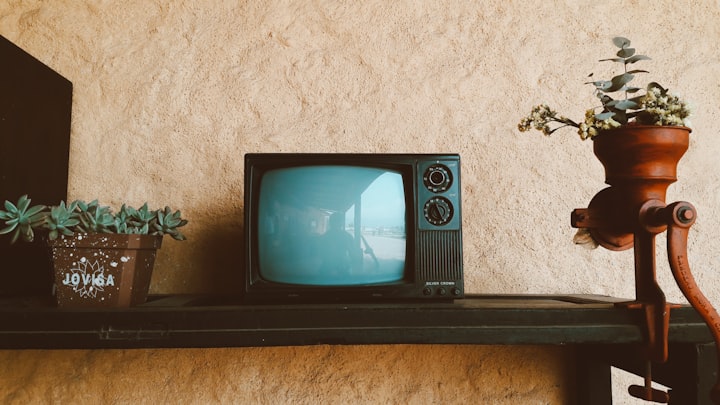
**This review contains spoilers so please don’t read if you’re yet to watch!**
The latest addition to my long list of “Films and TV Shows binged during the pandemic” is the Amazon Prime original “The Boys”. Now, I’ve wanted to watch this since I first got a glimpse at the promotional trailer more than a year ago. However, due to the disaster that was 2019 and various other pressing issues like post-thesis recovery and general “getting my life together”, I missed out on the initial hype and only got round to watching both seasons in the last week.
Frankly, this show is right up my street. I loved the story arcs, cinematography, direction and performances by the whole cast.
The premise is that global conglomerate Vought International nurture 200+ superheroes (their motto is “we make heroes super”). In particular, they’re renowned for the production and marketing of “The Seven”, otherwise known as “Supes”. The Supes are idealised prophets who have their faces plastered to action figurines, posters and merchandise all over America. They’re modern-day celebrities equipped with PRs and lawyers, ready to hand out the relevant NDAs whenever they cross the line (sound familiar?!). The Supes are branded as the morally-sound saviours of “we, the people”, there to intervene at every crisis. However, away from the spotlight, The Supes get up to all sorts of nasty stuff and it is left in the hands of a few individuals, with vengeance and justice on their agenda, to turn the tables.
The team consists of the costume-clad Transluscent (invisibility powers), The Deep (a man with amphibious qualities including being able to communicate with underwater creatures), Queen Maeve (super-strength), A-Train (super speed), Homelander and newcomer Starlight (channels power from natural sources). They’re beautiful posthumans with dashing smiles for the cameras and perfectly rehearsed spiel for spectators.
On the surface, the characters are nothing special. The classic tropes of superhero visuals are there, particularly in the classical visual stylisation of the All-American, omnipotent leader that is Homelander. He’s the ultimate Aryan god on earth with piercing blue eyes and meticulous blonde hair, as well as the Superman-esque physique and royal blue costume. The Wonder Woman-esque figure that is Queen Maeve serves at his side, the generic poster girl that is both powerful AND sexy. Yet the character development subverts from a lot of the traditional story arcs and instead encourages audiences to examine the behind-the-scenes toxicity of the modern day superhero culture. The show is dark, satirical and a prescient social commentary on feminism, the age of the celebrity and the corruption of the modern political landscape. Oh, and it’s also a bingeable action-packed, ultraviolent spectacle all at the same time! I definitely wish this series had been released before I handed in my thesis on the changing representations of females in action films. My chapter’s analysis on Wonder Woman and the changing evolution of her spectacle over the span of her existence sure would have been enhanced by commentary on The Boys.
Alas, it wasn’t to be.
But that hasn’t stopped me picking apart the details which make this show so extraordinarily powerful as a platform for empowered heroines onscreen.
I love the way we’re shown the corrupt world of The Supes through both Hughie’s and Starlight’s perspectives. The former being a powerless everyman who has lost his girlfriend at the hands of a reckless Supe and the latter the most recent recruit to The Seven. Hughie is the average Joe we’re rooting for, under renegade Butcher’s wings and tutelage. Their fight is against the system. Meanwhile, Bible-abiding pageant girl Starlight is the naive addition to The Seven who has a lot to learn about what happens “behind the scenes”.
Newcomer Starlight’s struggle to assimilate into the team shows the extent to the Supes’ exclusivity and emphasis on “image”. She’s sexually assaulted within a day of taking her role as part of The Seven.
Then, when she saves a woman from being raped by two men in an alley way, “out of hours”, the publicity team fly off the handle. Without verifiable proof that she acted to save the woman, as it could be interpreted that the men were disturbed and attacked with no due reason. This goes to show that even in this utopian idealist world of superheroes, where Starlight is capable of lifting a car up with her own bare hands and punching through brick walls, a man’s voice is STILL more powerful, with her account of the event downplayed. In the end, it’s only because the anonymous victim comes forward to corroborate the version of events that Starlight gets the recognition she deserves for being a true heroine and stepping up to serve justice without a second glance. The result of this victory is an undignified “image change” that focuses on Starlight as a feminist icon, promoting values of empowerment. However, this also comes with a modified scanty outfit that reveals most of her legs, much to Starlight’s disdain. The PR team see this is as an ode to the liberated modern-day feminist, and the metatextual context is better still. The gender disparities are so apparent in comic books and their filmic adaptations, with women frequently presented in more revealing outfits and featured as marginal characters as opposed to key protagonists in their own right. I think this is what makes The Boys so special. Despite the misleading title, so much of the show is about “the girls”. Girls get things done!
Personally, I feel that the tone and stylistic qualities of The Boys makes it shine in a way that commercial Marvel blockbusters and DC Comic adaptations are set up to fail. The Supes are fallible and deceptive, as opposed to noble and pure. Much of their success is owed to a large team of marketing professionals who stage opportunities for intervention and plug large amounts of financial backing into the advertising campaign that contributes to the global outreach of the Supes. They’re not inherently likeable: in fact, they’re selfish, arrogant, manipulative and, in some instances, almost sociopathic. They’re not infallible: they’re jaded and broken figures in the public spotlight, and the show makes sure to show the three-dimensional aspects of their characters beyond what we’d normally see in the generic action/superhero series.
I look forward to seeing how the characters are developed further and hope that the story arcs continue to deliver some premium goods for audiences!
About the Creator
Pip Yed
Hi, there! I’m Ayesha, but you can call me Pippa.
I’m an editorial associate who spends free time reading and writing avidly. For music collaborations, publication opportunities & general enquiries, please contact: [email protected]





Comments
There are no comments for this story
Be the first to respond and start the conversation.